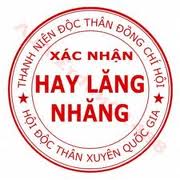CHỦ TỪ + HAVE/ HAS + QUÁ KHỨ PHÂN TỪ (PAST PARTICIPLE)
Thì hiện tại hoàn thành diễn tả hành động đã xảy ra hoặc chưa bao giờ xảy ra ở 1 thời gian không xác định trong quá khứ.
Thì hiện tại hoàn thành cũng diễn tả sự lập đi lập lại của 1 hành động trong quá khứ.
Thì hiện tại hoàn thành cũng được dùng với i since và for.
Since + thời gian bắt đầu (1995, I was young, this morning etc.) Khi người nói dùng since, người nghe phải tính thời gian là bao lâu.
For + khoảng thời gian (từ lúc đầu tới bây giờ) Khi người nói dùng for, người nói phải tính thời gian là bao lâu.
She has never seen snow.
I have gone to Disneyland several times.
We have been here since 1995.
They have known me for five years.
Cụm và từ ngữ chỉ thời gian: Never, ever, in the last fifty years, this semester, since, for, so far, up to now, up until now, up to the present, yet, recently, lately, in recent years, many times, once, twice, and in his/her whole life
THÌ HIỆN TẠI HOÀN THÀNH TIẾP DIỄN
Thì hiện tại hoàn thành tiếp diễn nhấn mạnh khoảng thời gian của 1 hành động đã xảy ra trong quá khứ và tiếp tục tới hiện tại (có thể tới tương lai).
CHỦ TỪ + HAVE/HAS + BEEN + ÐỘNG TỪ THÊM -ING
I have been waiting for you about 20 minutes.
The child has been sleeping all afternoon.
Cụm và từ ngữ chỉ thời gian: All day, all week, since, for, for a long time, almost every day this week, recently, lately, in the past week, in recent years, up until now, and so far
Kevin Khôi Trương
PRESENT PERFECT CONTINUOUS
I have been doing
You have been doing
He has been doing
We have been doing
You have been doing
They have been doing
TÓM TẮT:
Ðể nói một hành động kéo dài trong quá khứ và VỪA MỚI ngừng.
Ðể hỏi việc xảy ra bao nhiêu lâu trong quá khứ và ta hứng thú câu chuyện: hành động chưa chấm dứt.
**************************
This tense is formed with the modal "HAVE" or "HAS" (for third-person singular subjects) plus "BEEN," plus the present participle of the verb (with an -ing ending):
1* To talk about a long action which began in the past and has just stopped.
2* To ask or say how long st has been happened. The action began in the past & is still happening or has just stopped
how long ; for ( for 5 years ; for over an hour ); since ; today ; recently ;
3* For actions repeated over a period of time ( how long ; for ; since )
*** To say how long st has been happening .
*** We are interested in the action : the action has not been finished .
1* I have been working in the garden all morning.
George has been painting that house for as long as I can remember.
You're out of breath . Have you been running ?
She has been running and her heart is still beating fast.
Why are your clothes so dirty? What have you been doing ?
That man over there is bright red. I think he's been sunbathing.
Janet is hot and tired . She has been playing tennis.
Ann is very tired . She has been working hard
It has just been raining.
2* It is raining now. It began to rain 2 hours ago and it is still raining . It has been raining for 2 hours
Have you been working hard today ?
How long have you been learning English ?
I've been waiting here for over an hour
I've been watching TV since two 2 o'clock .
George hasn't been feeling well recently.
3* She has been playing tennis since she was eight
How long have you been smoking ?
It's raining : How long has it been raining ?
My foot is hurting : How long has your foot been hurting ?
Kevin is studying He has been studying for 3 hours
Mary is working in London . She started working there on 20 May . She has been working since 20 May.
Nam Phương
3- QUÁ KHỨ/QUÁ KHỨ TIẾP DIỄN
THÌ QUÁ KHỨ ÐƠN
Thì quá khứ đơn diễn tả hành động đã xảy ra và kết thúc trong quá khứ với thời gian xác định.
CHỦ TỪ + ÐỘNG TỪ QUÁ KHỨ
When + thì quá khứ đơn (simple past)
When + hành động thứ nhất
I went to the library last night.
She came to the U.S. five years ago.
He met me in 1999.
When they saw the accident, they called the police.
Cụm và từ ngữ chỉ thời gian: last night, last year, last time, etc., ago, in 1999, today, yesterday, then = at that time, in the 1800's, in the 19th century, when, and for
Today đôi khi được dùng ở thì hiện tại tiếp diễn và tương lai đơn. For đôi khi được dùng ở thì hiện tại hoàn thành (present perfect).
THÌ QUÁ KHỨ TIẾP DIỄN
In (a), 2 hành động đã xảy ra cùng lúc. Nhưng hành động thứ nhất đã xảy ra sớm hơn và đã đang tiếp tục xảy ra thì hành động thứ hai xảy ra.
CHỦ TỪ + WERE/WAS + ÐỘNG TÙ THÊM -ING
While + thì quá khứ tiếp diễn (past progressive)
In (b), 2 hành động đã xảy ra cùng một lúc.
a. What were you doing when I called you last night?
b. He was watching TV while his wife was cleaning the bedroom.
Cụm và từ ngữ chỉ thời gian: While, at that very moment, at 10:00 last night, and this morning (afternoon)
Kevin Khôi Trương
SIMPLE PAST CONTINUOUS
I was doing
You were doing
He was doing
We were doing
You were doing
They were doing
TÓM TẮT:
Hành động kéo dài, tiếp tục, ở một thời điểm nào đó trong quá khứ
Ðể nói hành động kéo dài, đang ở giữa công việc, trong một thời gian nào đó. Không cho biết khi nào chấm dứt.
*********************************
1* The PAST PROGRESSIVE TENSE indicates continuing action, something that was happening, going on, at some point in the past. This tense is formed with the helping "to be" verb, in the past tense, plus the present participle of the verb (with an -ing ending):
2* To say that someone was in the middle of doing something at a certain time.
3* To say that st happend in the middle of st.
4* It doesn't tell us wether an action was finished or not.
5* To tell how long something has been happening
Examples:
1* I was riding my bike all day yesterday.
Joel was being a terrible role model for his younger brother.
Dad was working in his garden all morning.
During the mid-50s, real estate speculators were buying all the swampland in Central Florida, and innocent people were investing all their money in bogus development projects.
Was he being good to you?
2* This time last year I was living in Spain. What were you doing at 10 o'clock last night ?
3* Tom burnt his hand when he was cooking the lunch
While I was working in the garden , I hurt my back.
I saw Jim in the park. He was sitting on the grass.
It was raining when I got up .
Carlos lost his watch while he was running.I was sleeping on the couch when Bertie smashed through the door.
5* Tom was cooking the dinner . (He was in the middle of cooking, we don't know wether he finished or not).
COMPARE:
When Tom arrived,
- we were having dinner. (We had already started dinner before Tom arrived )
- we had dinner ( Tom arrived and we had dinner )
You've been smoking too much recently. You should smoke less.
Ann has been writing letters all day.
Nam Phương
4- QUÁ KHỨ HOÀN THÀNH/QUÁ KHỨ HOÀN THÀNH TIẾP DIỄN
THÌ QUÁ KHỨ HOÀN THÀNH
Thì quá khứ hoàn thành diễn tả 1 hành động đã xảy ra và kết thúc trong quá khứ trước 1 hành động khác cũng xảy ra và kết thúc trong quá khứ.
CHỦ TỪ + HAD + QUÁ KHỨ PHÂN TỪ
I had just finished watering the lawn when it began to rain.
She had studied English before she came to the U.S.
After he had eaten breakfast, he went to school.
THÌ QUÁ KHỨ HOÀN THÀNH TIẾP DIỄN
Thì quá khứ hoàn thành tiếp diễn nhấn mạnh khoảng thời gian của 1 hành động đã đang xảy ra trong quá khứ và kết thúc trước 1 hành động khác xảy ra và cũng kết thúc trong quá khứ.
CHỦ TỪ + HAD + BEEN + ÐỘNG TỪ THÊM -ING
We had been living in Santa Ana for 2 years before we moved to Garden Grove.
Cụm và từ ngữ chỉ thời gian: Until then, by the time, prior to that time, before, after
Dùng thì quá khứ hoàn thành cho hành động thứ nhất. Dùng thì quá khứ cho hành động thứ hai.
Mẹo: Quí vị có thể nhớ theo cách này.
Chữ cái tiếng Anh A B C.......
"A" đứng vị trí thứ nhất và "A" là chữ cái đầu tiên của chữ "After". Cho nên After + hành động thứ nhất.
Trước tiên: Alex had gone to bed.
Sau đó': He couldn't sleep.
After Alex had gone to bed, he couldn't sleep.
Trước tiên: Jessica had cooked dinner.
Sau đó': Her boyfriend came.
Jessica's boyfriend came after she had cooked dinner.
"B" đứng ở vị trí thứ hai, và "B" là chữ cái đầu tiên của chữ "Before". Cho nên Before + hành động thứ 2.
Trước tiên: Kimberly had taken the test.
Sau đó': She went home yesterday.
Kimberly had taken the test before she went home yesterday.
Trước tiên: Brandon had brushed his teeth.
Sau đó': He went to bed.
Before Brandon went to bed, he had brushed his teeth.

















 admin
admin





































